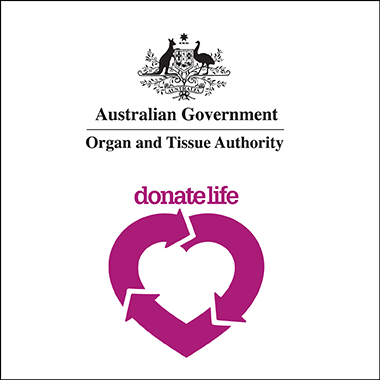Volume 31 Number 1
Complexities and controversies in transplantation
Elyn Montgomery
For referencing Montgomery E. Complexities and controversies in transplantation. Transplant Journal of Australasia 2022; 31(1):3.
DOI https://doi.org/10.33235/tja.31.1.3

I begin the April 2022 editorial by welcoming Louise Fuller as our incoming TJA Editor. Louise is a senior clinical physiotherapist working in heart and lung transplant services at The Alfred Hospital, Melbourne. Louise holds a PhD which examined rehabilitation following lung transplantation. Recently, Louise was the recipient of the prestigious Churchill fellowship. The fellowship will allow Louise to develop rehabilitation models to improve patient survival, quality of life, participation in daily activity, muscle strength, mobility and return to work and sport. I have no doubt that Louise’s clinical expertise and extensive experience in research and publication will be invaluable to the TJA. Welcome to the team Louise!
I would like to express my gratitude and sincere thanks to Libby John in her role as Associate Editor. Libby has been a great support to me during my time as Editor. Many past editions of the TJA would not have made it to print if it were not for Libby’s hard work and continued dedication to the TJA. I must also recognise the hard work and commitment of the TNA National Executive and thank you for your support.
In a world-first earlier this year, surgeons at the University of Maryland Medical Center transplanted a genetically modified pig heart into 57-year-old David Bennett. As well as providing a wealth of data to further the possibilities of xenotransplantation, the procedure also raised many complex ethical and technical issues. It is timely that this TJA edition explores several complexities in the field of transplantation. Although there may not be a simple solution to many of the complexities we face, it is beneficial to create healthy debate around these topics to ensure the continued progress in transplantation from both an ethical and technical perspective.
Our Guest Editorial is written by Dr Dominique Martin, Associate Professor in Bioethics and Professionalism at Deakin University. Dr Martin provides a fascinating exploration of ethical controversies in organ donation and transplantation, including the more prominent ‘hot’ topics, such as xenotransplantation, to long-standing ethical issues that receive less attention. Dr Martin considers how we can all participate in the conversation around ethical issues to ensure ethical advancement across organ donation and transplantation.
Professor Wayne Hawthorne of Westmead Clinical School, University of Sydney, the Westmead Institute for Medical Research and President of the International Xenotransplantation Association is a world leader in xenotransplantation. Professor Hawthorne briefs us on some of the issues mentioned above with an overview of xenotransplantation, its importance to our patients, and the ethical debate associated.
The shortage of suitable organ donors necessitates careful patient selection across the organ groups. There are challenges in justifying the selection of patients with specific aetiologies in liver transplantation, including acute alcoholic hepatitis and unresectable colorectal cancer liver metastases. Historically, survival rates in patients with these diagnoses have been poor. However, as the evidence continues to evolve, Dr Josipa Petric and Associate Professor Savio Barreto of Flinders Medical Centre explore this controversial issue in their article.
Obesity rates in Australia are increasing, with obese patients undergoing surgery at greater risk of complications – such as surgical site infection and delayed wound healing – than those with a normal body mass index1. Increasing surgical concerns in obese patients are becoming more prevalent in renal transplantation. Dr Christine Russell, renal transplant surgeon at the Royal Adelaide Hospital, examines this complex issue and how to manage it.
Alison Hodak has recently been appointed as national manager of clinical programs with the Australian Organ and Tissue Authority. Alison is passionate about organ donation and transplantation and brings many years of clinical experience to the role. Alison’s profile highlights the key national initiatives of her new role which focus on increasing organ and tissue donation, retrieval and transplantation.
As I sign off my final editorial, I thank all the authors who have contributed to the TJA during my time as Editor. It is inspiring to learn about the work you are all doing and to see that work transform into a published article. I encourage all members to consider contributing to a future edition of the TJA.
Author(s)
Elyn Montgomery
Editor, Transplant Journal of Australasia
Email tjaeditor@transplantnurses.org.au
References
- 1. Royal Australasian College of Surgeons. Position paper: reducing the burden of obesity. Royal Australasian College of Surgeons; 2022 [cited 2022 Apr 4]. Available from: https://www.surgeons.org/-/media/Project/RACS/surgeons-org/files/position-papers/POS_FES-PST-068_Reducing_the_Burden_of_Obesity.pdf?rev=011d96c204434eaab8cea5a795d7d9f2&hash=AE300049B7D2A5EAB042110B3EE351A



